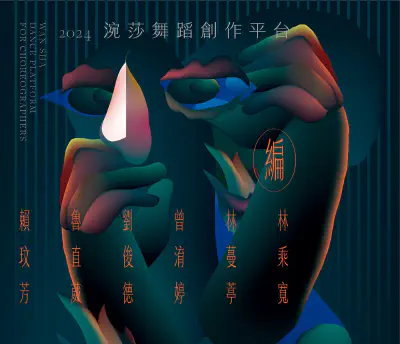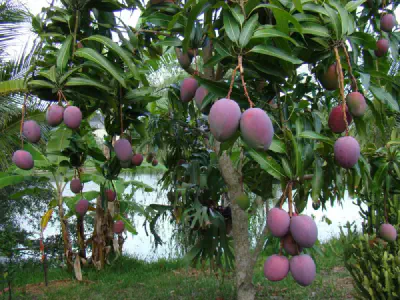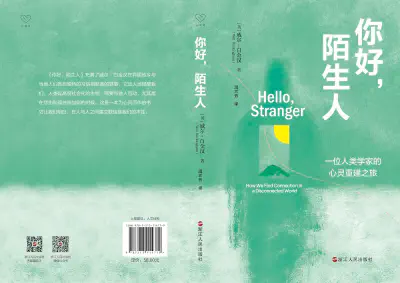Zhuangzi: The Philosopher and the Text
Zhuangzi (sometimes written Chuang Tzu), or Master Zhuang, is the name given to the philosopher Zhuang Zhou, who lived in China sometime between 369 and 286 BCE. The book that takes the philosopher’s name, the Zhuangzi, is almost certainly the work of several hands. And although the book doesn’t present a coherent viewpoint, it does have an overarching mood: a free-wheeling, almost anarchistic blend of humour and insight, one that may reflect the character of the historical Zhuang Zhou.
Dragging our tails in the mud
As with many early philosophers, Zhuangzi is a somewhat shadowy figure. What scraps of biography we have are fragmentary and unreliable.
Zhuang Zhou’s name appears in the work of the historian Sima Qian, who lived between 145 and 86 BCE. Sima Qian wrote that Zhuang Zhou was from the state of Song, and he had a low-ranking official position. One particularly famous story from Sima Qian tells of how one day, Zhuangzi is invited to become prime minister of the State of Chu. But he declines, likening a government official to a sacrificial ox that is dressed up in finery, well-fed and well-treated… until the day comes that it is inevitably sacrificed.
A similar story appears in the Zhuangzi itself. In this story, the philosopher was once idling by the side of the river Pu, catching fish. As he was fishing, two envoys from the King of Chu approached him. The King had heard Zhuang Zhou was a wise man, and so had sent the envoys to invite him to become prime minister.
The envoys imagined Zhuang Zhou would be delighted by his promotion from humble fisherman to most powerful minister in the realm. But the philosopher was not impressed. He didn’t even look around but went on fishing. Then he said to the two envoys:
I have heard there is a sacred turtle in Chu, already dead for three thousand years, which the king keeps in a bamboo chest high in his shrine. Do you think this turtle would prefer to be dead and having his carcass exalted or alive and dragging his backside through the mud? [1]
The envoys confessed that the tortoise lurking in the mud was probably having the better time of it. Still not turning around, Zhuang Zhou told them to scram. “Get out of here,” he said. “I, too, will drag my backside through the mud!”
Philosophy
On gnarliness and uselessness
It’s already apparent that the Zhuang Zhou in these stories is a thinker who is sceptical about the idea that prestige and social status are a path to the good life. And the text of the Zhuangzi tackles these questions more directly, putting forward an intriguing argument about the inherent value of uselessness.
One image that crops up repeatedly in the text, in various forms, is the image of the gnarled, ancient tree that is so twisted and bent out of shape that nobody ever tries to cut it down. Here is one version of the story as it appears in the text:
Ziqi of Nanbo was travelling in the hills of Shang when he came across a huge tree. He marvelled at it, for the horses from a thousand chariots could have cooled themselves in its shade. “What sort of tree is this?” said Ziqi. “It must be of unusually fine material.” Looking up at its branches, he saw that they were too twisted and gnarled to be used for beams or pillars. Looking down at its trunk, he saw that it was too splotched and split to be used for a coffin. It stung and stabbed the tongue when licked and crazed and inebriated the mind for three days when sniffed. Ziqi said, “It turns out to be a worthless tree, and thus it has been able to grow so huge…" [2]
Then Ziqi sighs, and says, “Ah! People of spirit depend on this uselessness!”
The argument is this: useful trees, and useful people, are liable to be chopped down. Making ourselves useful simply puts us in the way of danger, just like the government minister who bustles around being useful, only to be cast aside (or, worse, executed) when it no longer seems expedient for them to continue in their role. Our concern with usefulness brings with it significant risks and problems (see also Yang Zhu, and Arete the Cyrenaic).
After talking about several large, gnarled and useless trees, the Zhuangzi switches to the human world. Here the author tells the story of a man he calls Shu the Discombobulated. Shu is so profoundly disabled that he is passed over for military service, and exempted by rulers when it comes to engaging in forced labour. In this way, Shu manages to live out his natural lifespan, while his able-bodied compatriots risk, and often lose, their lives.
Contemporary philosophers John Altmann and Bryan W. Van Norden have suggested that Zhuangzi is the first philosopher of disability, because he challenges our narrowly preconceived notions of human norms, and asks us to re-evaluate our ideas about what is most desirable in human life.
Zhuangzi concludes his discussion of uselessness with the famous claim that to really understand what is important in life, we need to undertake a revolution in what we value and take to be good and useful.
Everyone knows how useful usefulness is, but no one seems to know how useful uselessness is. [3]
Free and easy rambling
The freewheeling philosophical style of the Zhuangzi is captured by the phrase “free and easy wandering” (xiaoyao you), which is also the title of the opening section of the text.
The Zhuangzi takes this idea of free and easy wandering not only as an idea to think about philosophically but also as advice for how to do philosophy. The text is endlessly digressive, always liable to go off on all kinds of strange tangents. One moment, the author is talking about an enormous mythical fish called Kun, thousands of miles long. Next, he is talking about an obscure ancient joke book. Then he is spinning parables about cicadas and doves. After that, he is reflecting on questions of identity and merit.
So this idea of free wandering really captures something of the spirit of the Zhuangzi’s philosophy as a whole, and reminds us that if we want to stumble across interesting new ideas, then the way to do this is often to wander freely, rather than to follow a more defined line of research.
You could say that for Zhuangzi, or for the authors of the Zhuangzi, what is most important—in philosophy and life—is that we can keep on moving, that we maintain this free and easy wandering. And this free and easy wandering is a path toward true security, because it allows us to connect harmoniously with the many transformations of the world, rather than being at odds with them.
This is how the Zhuangzi puts it:
Harmonize with all things by means of their Heavenly Transitions, follow along with them in their limitless overflowings, and you will be able to fully live out your years. Forget what year it is, forget what should or should not be. Let yourself be jostled and shaken by the boundlessness—for that is how to be lodged securely in the boundlessness!” [4]
The Zhuangzi is hugely entertaining read. But it is also a challenging one, because it asks us to really question whether the things we consider to be good, worthwhile or valuable are in reality as good, worthwhile or valuable as we imagine them to be. And it challenges us to ask: what if things only start happening for us only when we learn how to more effectively bunk off? What if our plans for how to make our lives useful are simply a way of cutting ourselves off from the experience of living more deeply and boundlessly? And what if it is only when we forget ourselves—and all our ideas of what is important—that we can really understand what life is all about?
Notes
[1] Brook Ziporyn, Zhuangzi: The Essential Writings with Selections from Traditional Commentaries (Hackett 2009), p. 67
[2] ibid. p. 33
[3] ibid. p. 33
[4] ibid, p. 24, translation slightly modified
Further Reading
Books
I used Brook Ziporyn’s translation for this piece, but if you can track down Victor Mair’s Wandering on the Way: Early Taoist Tales and Parables of Chuang Tzu (Bantam Books 1994), it’s a really enjoyable read. There’s also Burton Watson’s classic translation, The Complete Works of Zhuangzi (Columbia University Press 2013).
For some interesting essays on the Zhuangzi, try the edited collection by Roger Ames, Wandering at Ease in the Zhuangzi (SUNY Series in Chinese Philosophy and Culture, 1998).
I’ve not had a chance to check this one out yet, as it is just published, but Fiction and Philosophy in the Zhuangzi: An Introduction to Early Chinese Taoist Thought by Romain Graziani (Bloomsbury 2021) looks intriguing.
Online Resources
This is a fun piece on how Zhuangzi’s philosophy reminds us that it is okay to be a bit of a mess.
Image: Mountains by Zhang Lu (1464–1538). Public Domain via Wikimedia Commons.



